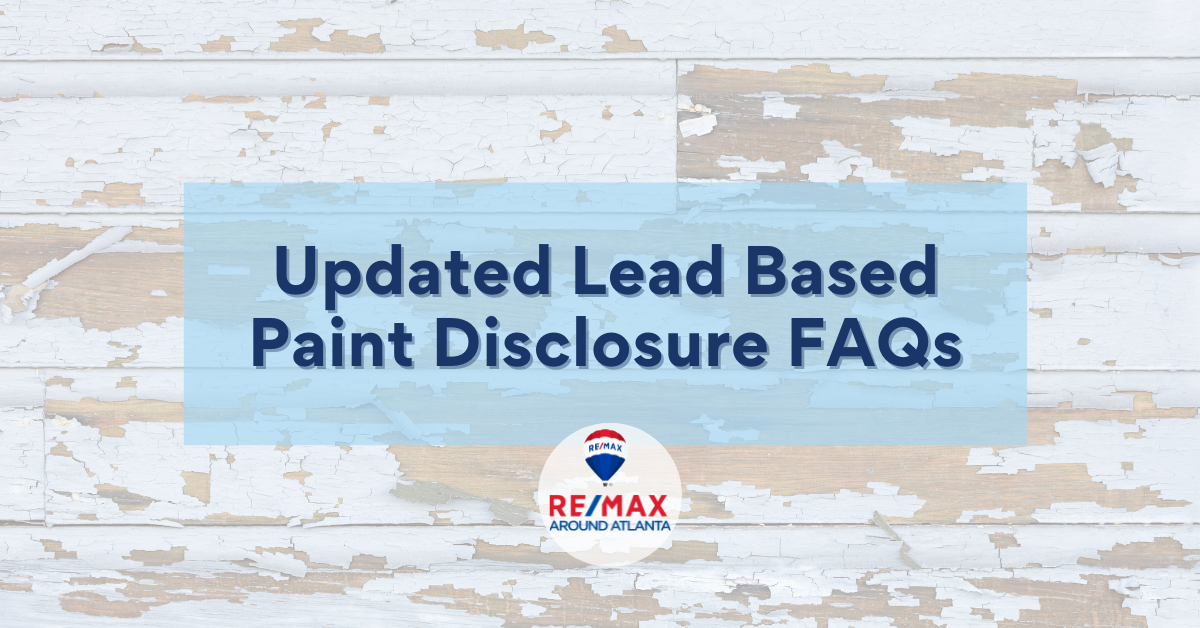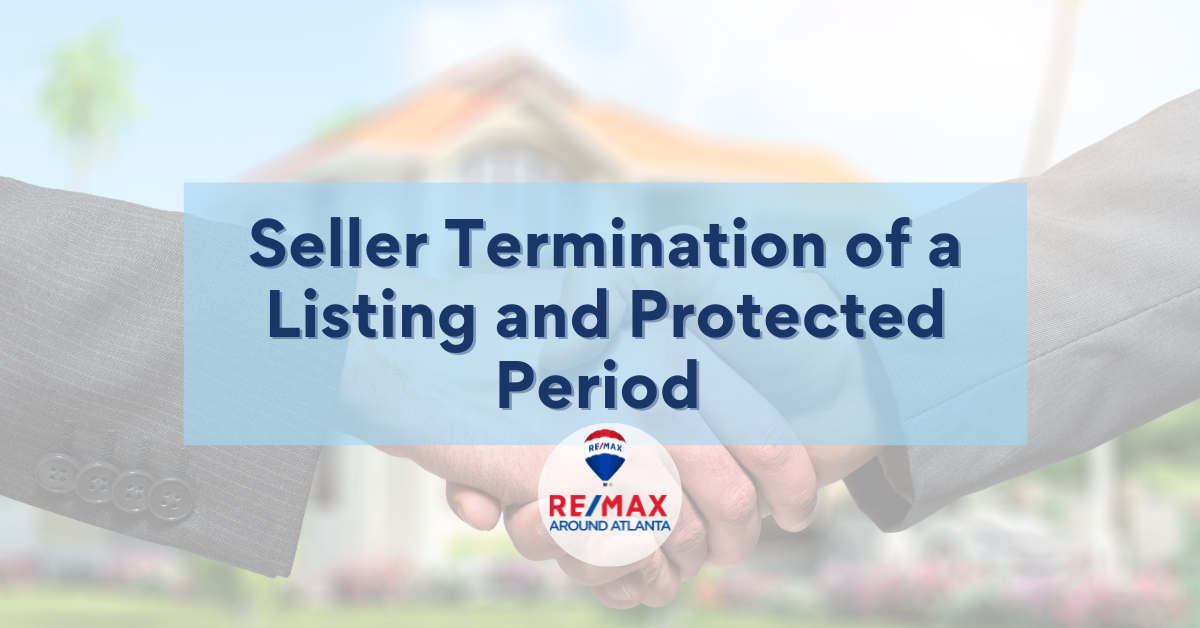|
We often see contracts using the acronym TBD or “To Be Determined.” TBD may work for some situations, but it definitely does not work in a contract. The reason is simple, to create an enforceable contract in Georgia, there must be a present agreement of the parties on all material terms.
Financing Contingency If you write TBD on a material term, such as an interest rate in a financing contingency, then the parties have merely agreed to agree in the future and the contract would be unenforceable in Georgia. The parties have not presently agreed to all relevant terms. What does work in the financing contingency example for interest rate is “prevailing rate” or “market rate.” The “prevailing rate” and “market rate” can be determined, so there is an enforceable agreement. Closing Attorney The same legal reasoning applies to the choice of a closing attorney. If the closing attorney is TBD, it simply means the parties have agreed to agree. That doesn’t work. Instead, the language “TBD by the buyer (or seller)” works. Only one of the parties needs to decide who the closing attorney will be. “TBD by the Buyer (or Seller)” is enforceable. Closing Date A closing date should never be TBD by itself, but it can be tied to an event or date that can be determined. For example, if a buyer needs to get a permit or needs to rezone a property, the closing date can be tied to the date that the permit is received or the rezoning is completed. For example, this works: “Closing date shall be 30 days from the date of issuance of the permit to build.” If there are material terms in a contract that remain, it is always best to try to work them out before finalizing the contract. Otherwise, see above! Broker Corner 8/30/23
0 Comments
You’ve worked hard and written 6 offers to purchase your listing. The seller has rejected them all. Now the seller has decided to terminate the listing. What are your rights?
First, look to the listing to see your options. In Georgia, if there is not an express early termination provision or a material breach of the terms of the listing, clients cannot unilaterally terminate listing agreements or brokerage engagement agreements without consequences. That is, sellers do not have an automatic contractual right to terminate without consequences and are in breach of the listing contract if they do terminate. If you’ve used the GAR Exclusive Seller Brokerage Engagement Agreement (F101), you won’t find an express early termination provision (unless you added it yourself). That is, the GAR listing agreement does not give the seller the right to terminate. What you will see is a provision in the “Protected Period” section of the agreement that lays out the consequences if the seller does unilaterally terminate. Bad stuff happens. The Seller sends you something in writing that says “You’re fired!” or “I am terminating this agreement.” However, you do not have to agree or consent. Your rights are far different with a unilateral termination versus a mutual termination to which you agree. The Protected Period Section Includes Seller Consequences for a Unilateral Termination Section 5 in the GAR listing agreement lays out the consequences if a seller unilaterally terminates and the listing agent does not agree. The Protected Period is the period of time commencing upon the unilateral termination of this Agreement by Seller in writing during which Broker shall be protected for its Commission.
Scenario You have an exclusive listing on a property, but the Seller sends you an email firing you. The seller does not have the express right to terminate you in the listing agreement without consequences. You do not agree to the termination. The Seller then lists the property with another agent and enters into a Contract to Sell* the Property during your protection period. What are your rights: The Seller owes you a commission per the original listing agreement for a sale to ANY buyer that was shown the property, either in person or virtually, or was provided specific information about or inquired about the Property either directly or through a broker working with the buyer during your protection period. What are the Rights of the 2nd Listing Agent? The Seller may also owe a commission to the 2nd listing agent. Though that is not your concern, it is likely that a closing would take place without your commission paid. You can send an invoice to the seller for your commission, but if the seller declines to pay you, you may have to resort to litigation for your commission. The threat of litigation often results in either a negotiated commission or a full commission. Commission rights and obligations in the GAR listing agreement survive termination. Do You Have to Provide Termination Paperwork to The Seller? You are not required to provide termination paperwork to the seller. However, the GAR Unilateral Termination of Brokerage Engagement Agreement (F155) clearly notes that the termination is unilateral, not mutual, and that the broker’s commission rights are not limited, waived or terminated. It also includes that the client must pay the cost to remove the listing from FMLS. Seeing in writing that your right to commission is not limited, waived or terminated, if the seller unilaterally terminates, may cause the seller to think twice before proceeding. This is the language in the Unilateral Termination In terminating the Agreement, Broker is directed by Client not to perform real estate brokerage services on behalf of the Client after the Termination Date of this notice to terminate. Nothing herein shall be construed as an agreement between the Client and Broker to mutually terminate the Agreement or to limit, waive or terminate Broker’s rights to a commission or the reimbursement of fees and costs resulting from the unilateral termination of the Agreement by Client. Unilateral Termination of this Agreement by Client does not eliminate the Client’s legal obligation to Broker for commission and/or fees due to Broker as specified in the Brokerage Engagement Agreement. If the Brokerage Engagement Agreement is a listing agreement, the cost to remove early the listing from any multiple listing service in which the property is listed shall be paid by the Client. Exception to Protected Period Commission Obligation Does Not Apply If a seller hires another exclusive listing agent following a normal expiration of a listing agreement, but during a protected period, the first listing agent’s commission rights during the protected period are ended. However, this exception does not apply in the case of a seller’s unilateral termination of a listing. *Contract to sell includes a lease, lease purchase or lease with an option to purchase. References: GAR Exclusive Seller Brokerage Engagement Agreement (F101) Weissman, Seth. The Red Book on Real Estate Contracts in Georgia (p. 1435). BookBaby. Kindle Edition. Broker Corner 8/22/23 Questions often come up regarding Loan Contingencies. Here’s a quick review of issues we often see.
Interest Rate as TBD Inserting TBD into the interest rate section of a loan contingency can make the contract void and unenforceable as too vague and indefinite if it is challenged. However, completing the section with “current prevailing rate” or “market rate” is generally enforceable. Similarly, if the loan contingency omits an interest rate altogether, the contract can be held to be unenforceable as too vague and indefinite. Remember, the entire contract would be unenforceable, not just the loan contingency. Late Appraisals and Denial Letters If an appraisal has not been completed prior to the end of the appraisal & finance contingency, the buyer cannot terminate the contract with a loan denial letter, based solely upon the reason "insufficient property data." Use of Approved Lender and Loan Denial Letter was expanded in the 1/1/2022 printing to include new sections (e) and (f), reasons upon which a loan denial letter may not be solely based: (e) the Property not appraising for at least the purchase price unless this Agreement is subject to an appraisal contingency and an appraisal meeting the requirements of this Agreement has been performed; or (f) the lender not having completed underwriting the loan request. Therefore, an appraisal not being completed is not a valid reason for a denial letter during the finance or appraisal contingency. So, if an appraiser hasn’t met a loan deadline, the buyer cannot use that as a sole basis for a loan denial letter. It is not considered “insufficient property data.” Use of an Appraisal by a Non-Approved Lender Where there is an “Approved Lender” included in §2 and the buyer chooses to use a non-approved lender, a buyer can still ask the seller for a price reduction or terminate the contract per the Appraisal Contingency, even if a non-approved lender did the appraisal. The forms committee intended that a buyer can ask for a reduction based on a low appraisal from an appraiser selected by any Lender, not just an “Approved Lender.” However, the buyer loses the ability to use a loan denial letter from a non-approved lender, but the buyer’s right to ask for a reduction in price or termination for a low appraisal stands – even if it is from the non-approved lender’s appraiser. Notice of Intent to Proceed with Loan Application in order for a buyer to terminate without penalty (get their earnest money back) based on a loan denial, the buyer must have fulfilled all the requirements in the exhibit. That includes having promptly sent the Notice of Intent to Proceed with Loan Application. Put another way, if the Notice of Intent to Proceed with Loan Application was not sent to the seller, the seller can legally keep the buyer’s earnest money even when the buyer was legitimately denied a loan and supplied the denial letter to the seller within the allowed time period. This is the relevant language in the loan contingency: Buyer to Notify Seller of Intent to Proceed. When it is known, Buyer shall promptly notify seller of any mortgage lender to whom Buyer has sent a notice of intent to proceed with loan application and the name and contact information for the loan originator. Use of Approved Mortgage Lender and Loan Denial Letter. Buyer may terminate this Agreement without penalty based upon an inability to obtain the Loan(s) only if Buyer fulfills all of the applicable requirements set forth in this Exhibit. (at the bottom of the section) Approved Mortgage Lenders and Pre-Approval Letters Including the name of an Approved Mortgage Lender and including a pre-approval letter from a lender are NOT substitutes for the notice. In fact, including the name of an approved lender in the financing contingency may not be to your buyer’s advantage because then a denial letter must come from that particular approved lender. Add the Notice to Proceed to Your Contract to Close Process You should add “Send Notice of Intent to Proceed with Loan Application” to your process. Yes, this is another step, but it is also another way to demonstrate your value to your client by managing the time limits and requirements to make sure clients are protected. The “Intent to Proceed” is a step in the loan process which takes place between the Borrower and the Lender. It is not the same thing as the NOTICE of Intent to Proceed with Loan Application that is sent to the seller. The Buyer’s Agent needs to tell both Buyer and Lender to alert the agent once this is done so the NOTICE can be sent. Notice Form GAR 816 The general notice form from GAR should be used to send the notice. The language is simple: “The Buyer hereby notifies the Seller that Buyer has communicated their Intent to Proceed with Loan Application with (Lender) _______________, Loan Officer, ____________ at (contact information) _____________________.” Loan Denial Letters GAR financing contingencies, including Conventional, FHA, VA and USDA-RD, include a very specific, time limited provision regarding Loan Denial Letters. If your buyer is denied a loan and the buyer can legitimately use the denial to terminate and get their earnest money back, don’t forget to timely send the Loan Denial Letter or the earnest money might go to the seller instead. These are the steps to be taken and the rules to follow.
August 11, 2023  EPA Fines Have Increased to $21,018 Per Violation! Why do we require the Lead Based Paint Disclosure (LBP)? The LBP is required by a federal law written in 1992 to protect purchasers and renters against exposure to lead based paint. The act is called the Residential Lead-Based Paint Hazard Reduction Act of 1992, also known as Title X (“Act”). What housing is required to have an LBP? Housing that was built prior to 1978, whether it is for sale or for rent. There are 2 different GAR disclosures tailored for each situation. For sales, it is GAR F316. For rentals, it is GAR F918. If you are using RE forms, the LBP disclosure form is RE 140 and the LBP pamphlet is RE 141. Do fixtures manufactured or painted prior to 1978 require an LBP? Yes, the Act includes lead-based paint hazards. A “LBP hazard” includes fixtures that may have been manufactured or painted prior to 1978, even if the property itself was built in 1978 or later. Consider antique doors, antique light fixtures or any other elements in the property that may have been created prior to 1978. If in doubt, disclose. When must LBP disclosures be made? The LBP disclosure of known information on lead-based paint and lead-based paint hazards before the binding date of contracts and leases. What if a LBP disclosure is not in compliance with the federal law? The Act carries huge fines for violations. Each violation currently carries a fine of $21,018.00! Each disclosure has multiple sections that need completion. Assume that investigators from the EPA are here in Georgia, spot checking for violations. Because they ARE here. What is Required and When? Before a Purchase Agreement or a Lease becomes binding, federal law requires the following:
Compliance is Easy If you represent the Seller of a property that falls into the Lead Based Paint disclosure requirement, the GAR Seller Representation (listing) forms now include a section for the disclosure. In item 7 of the listing, the Seller discloses to their Broker whether the dwelling, or any part of the dwelling, was constructed prior to 1978. The Seller also agrees to complete and provide the Broker with a signed Lead Based Paint Disclosure when the listing is signed. The listing agent should also sign the disclosure at (f). It should be attached to the listing as an exhibit. The Listing Agent can distribute it 2 ways: The best way is to upload it to FMLS /and GAMLS. The Exhibit can then be downloaded by the Buyer’s agent to sign before an offer is made. This method satisfies the requirement is that the LBP Exhibit be executed by both parties prior to a binding agreement. Of course, copies of the disclosure can also be placed in the property for agents and prospects to take. If you represent the Buyer, make it a habit to include "Protect Your Family From Lead In Your Home" GAR CB 04, along with Protect Yourself When Buying a House, with every Brokerage Agreement. Be sure to mark the box that it has been provided to the buyer in the Brochures section of the Buyer Brokerage Agreement, so you can prove that it was delivered. (And avoid a big fine.) Buyers often miss marking item (d) and an alternative at (e) on the LBP Disclosure. Item (d) confirms that the buyer has received the pamphlet and item (e) either waives an inspection or allows a 10 day period for an inspection. If these sections are not marked, the disclosure has not been completed; it will get kicked back and open to the fine by the Environmental Protection Agency. It’s the Law Sellers sometimes don’t want to sign the disclosure and push back. The LBT disclosure is mandatory. To confirm the seller’s and buyer’s responsibilities (and help you out with your sellers), this language is embedded at the top of the LBP Disclosure. UNDER FEDERAL LAW, THIS EXHIBIT MUST BE SIGNED BY THE SELLER AND BUYER, AND THE BUYER PROVIDED WITH A COPY OF THE LEAD-BASED PAINT BROCHURE PRIOR TO THE BUYER AND SELLER ENTERING INTO A BINDING AGREEMENT. THIS AGREEMENT MUST BE FILLED OUT FOR ALL HOUSING BUILT PRIOR TO 1978. August 4, 2023 Advertising includes ANY form of Media
The Broker MUST approve ALL advertising before it is posted. These are the Do’s! 1. Obtain written permission from the owner to advertise. 2. Obtain your Broker’s written approval on every advertisement before advertising. 3. Include the name of the Brokerage Firm that has the listing. 4. Include the Firm main telephone number of the Brokerage Firm of the listing. 5. Verify that no other name and phone number is larger in size than the name and phone number of the Firm. 6. Remove any expired listing from any Internet or social media posting within 30 days of listing expiration 7. Remove physical signage within 10 days of the expired listing. 8. Comply with local zoning regarding signage. 9. If an advertisement is published in error, take steps to correct it immediately. 10. Register a firm trade name(s), dba, with the Commission in order to advertise under a trade name, this includes trade names that are part of a logo. 11. To advertise another Firm’s listing, first obtain written permission from the listing Firm. 12. State the listing Firm’s name next to the property being advertised unless agreed otherwise by the listing Firm’s Broker. 13. For Internet advertising, include the name and telephone number of the Licensee's Firm on every viewable web page of a website, except when advertising in electronic messages of limited information or characters, a Licensee shall provide a direct link to a display that is in complies with the advertising Rule. 14. If any specific properties are advertised on the personal web sites of individual Licensees, the Brokerage Firm name and Firm phone number must be stated and displayed in a size greater or equal than that of the Licensee. 15. The Firm name and phone number must be on every viewable web page of a web site unless space limitations apply requiring the use of a direct Internet link to another web page displaying the required information. 16. To advertise multiple properties, state the Firm’s name adjacent to any specific properties being advertised. (It is only necessary to state the name of the Firm and its phone number one time in a block advertisement that includes several listings.) 17. Follow the direct supervision of the Broker holding your license (Associate Brokers, Salespersons, and Community Association Managers) for all advertising of real estate. These are the Don’ts 1. Do not state any other name or phone number more frequently or more prominently than the Brokerage Firm name and phone number. 2. Do not discriminate in advertising property, services, terms, conditions, etc. 3. Do not place a sign on a property without written permission. 4. Do not advertise on terms other than agreed upon in the listing agreement. 5. Do not mislead or misrepresent any property, terms, values, services, policies, etc. 6. Do not state the Licensee’s name more times than the Firm name. 7. Do not state the Licensee’s contact info in any size print larger than the Firm’s name and phone number. 8. Do not state only the direct dial phone number or mobile number of a Licensee. 9. Do not state the trade names or names of Licensees or groups of Licensees more frequently or prominently than that of the Firm name. This includes logos. 10. Do not post or publish any advertisement without first obtaining the Broker’s written approval. This article is only intended to be a summary and helpful guideline for Licensees regarding advertising real estate. The Licensee should always get approval from the Broker holding his/her license and can also reference Advertising Rule 520- 1-.09.and 43-40-25 Unfair Trade Practices for more specific details and guidance. Source: GREC Newsletter October 2022 |
RMAAReal Estate News, Brokers Blog & More Categories
All
Archives
July 2024
|





 RSS Feed
RSS Feed